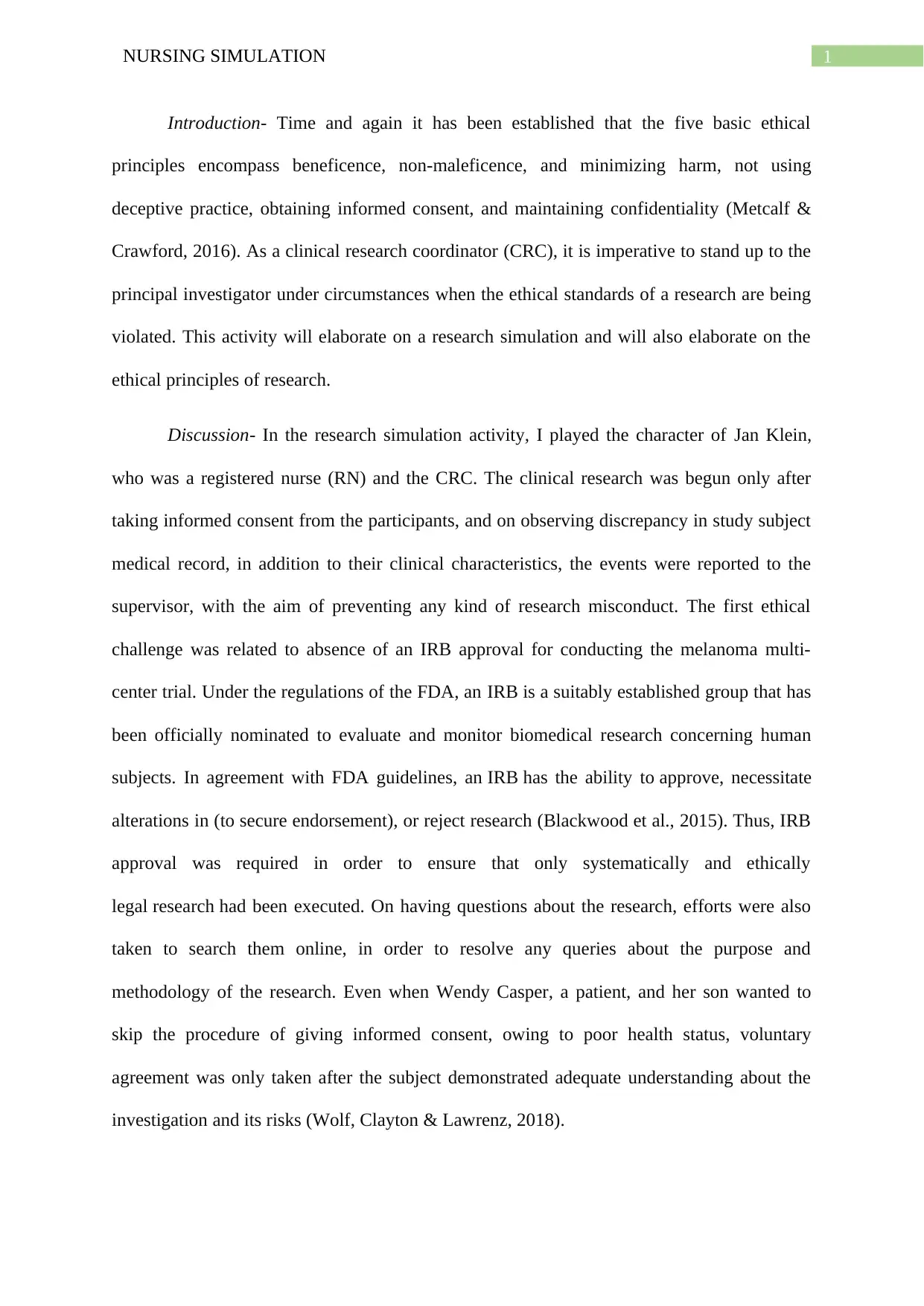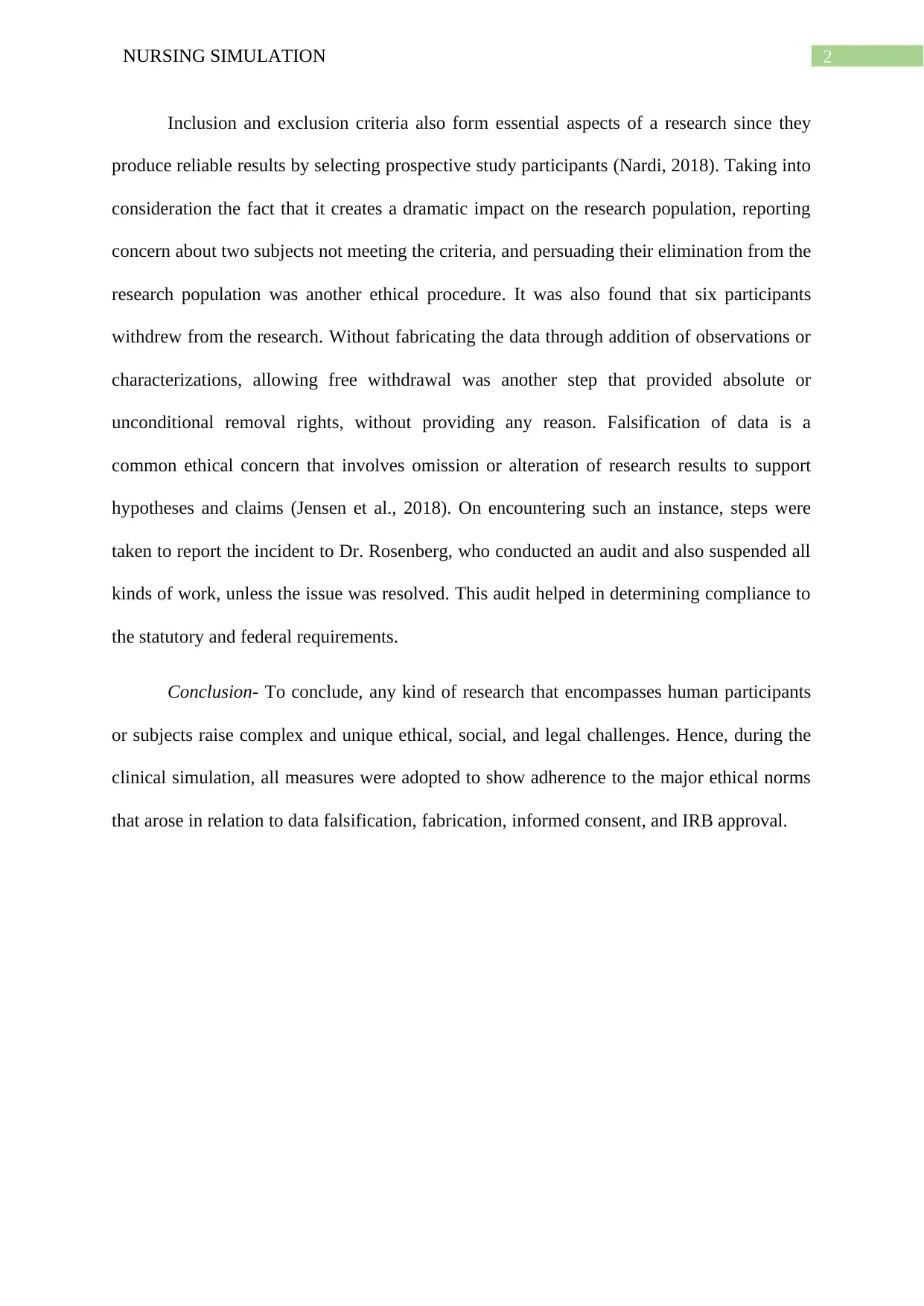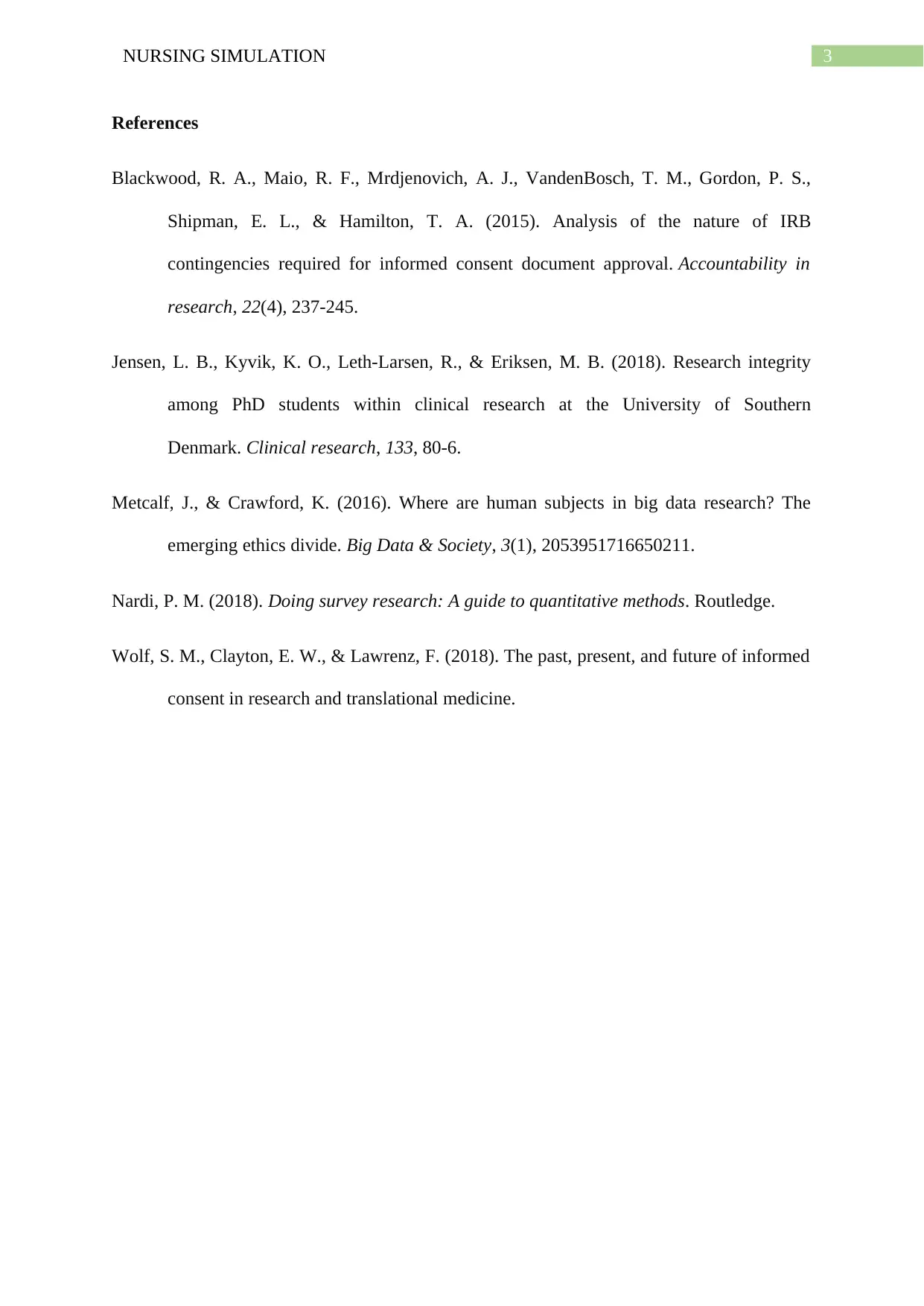University Nursing Simulation: Ethical Research Discussion
VerifiedAdded on 2022/09/17
|4
|837
|27
Discussion Board Post
AI Summary
This discussion post analyzes a nursing simulation where the student played the role of Jan Klein, a registered nurse and clinical research coordinator. The assignment explores key ethical principles in research, including beneficence, non-maleficence, informed consent, and maintaining confidentiality. The simulation highlighted ethical challenges related to IRB approval, informed consent discrepancies, inclusion and exclusion criteria, and data integrity. The student discusses the importance of adhering to ethical norms in research, particularly concerning data falsification, fabrication, and informed consent. The post references specific instances from the simulation, such as addressing the absence of IRB approval, ensuring voluntary informed consent, reporting concerns about participants not meeting criteria, and preventing data falsification, to emphasize the complexities of ethical decision-making in clinical research. The conclusion reinforces the critical need for ethical considerations when conducting research involving human participants and the measures taken to uphold these principles within the simulation.
1 out of 4







![[object Object]](/_next/static/media/star-bottom.7253800d.svg)